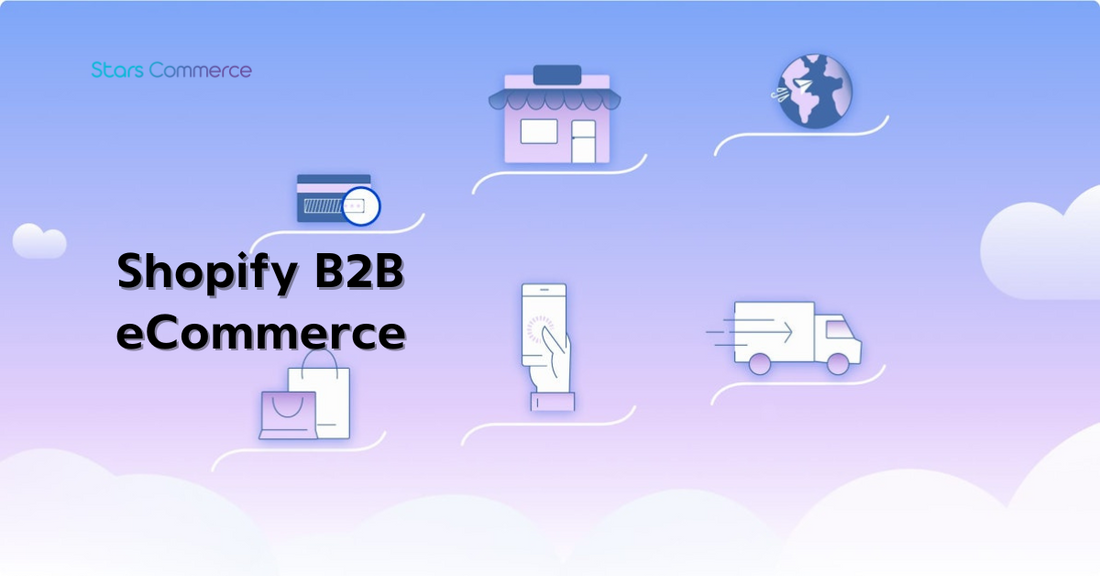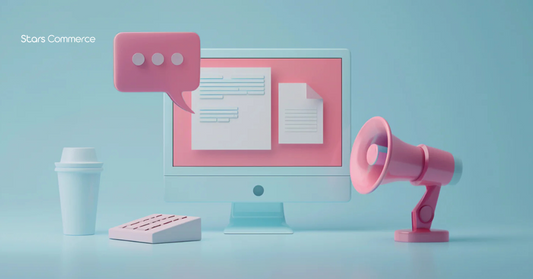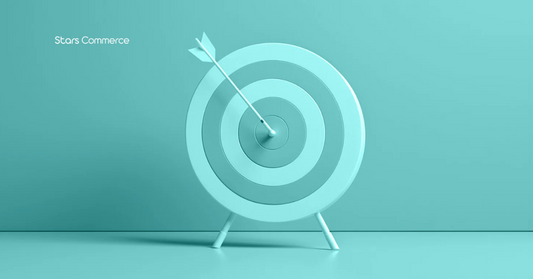B2C eCommerce has been popular for a while, while B2B eCommerce is growing rapidly. More businesses are acknowledging its worth as it offers a simple and speedy way for companies to procure products and services from other businesses.
As more and more businesses are joining the Shopify B2B eCommerce model and understanding the B2B eCommerce model thoroughly is becoming the need of the hour.
What is Shopify B2B eCommerce?
Shopify B2B eCommerce, also known as business-to-business electronic commerce, involves the online exchange of products and services between two businesses. This type of eCommerce includes transactions between manufacturers, distributors, resellers, retailers, and, in some cases, end-consumers.
While B2C (business-to-consumer) eCommerce involves companies selling products or services directly to consumers, B2B transactions place greater importance on supply chains as they often require multiple layers of approval and involve various departments.
B2B eCommerce purchases are typically long-term and involve recurring orders instead of one-time purchases.
Here are the key distinctions between Shopify B2C and Shopify B2B eCommerce:

When it comes to Shopify for B2B, Shopify Plus is a platform designed for wholesale businesses to manage and expand their operations with a focus on flexibility and customization. With specialized tools and features, Shopify Plus B2B enables businesses to cater to the unique needs of their buyers and operate at scale.
How does Shopify B2B eCommerce work?
The global business-to-business eCommerce market size was valued at USD 7,907.07 billion in 2022 and is projected to grow at a Compound Annual Growth Rate (CAGR) of 20.2% from 2023 to 2030.
Shopify B2B eCommerce improves supply chain efficiency by providing real-time data about product availability, inventory, shipment status, and production.
Over the years, manufacturers, distributors, and wholesalers have undergone a digital transformation to create a sustainable future for their businesses.
Businesses frequently engage in Shopify B2B eCommerce transactions within their supply chains, buying components and materials to use in their manufacturing processes.
Shopify B2B eCommerce sellers create an online store or platform that offers products or services to other businesses and work with wholesalers, distributors, manufacturers, and retailers. Also, B2B eCommerce:
- Involves online transactions between businesses
- May require approval from multiple layers and departments
- Enables customized pricing and discounts
- Provides access to a wider range of suppliers and customers
- Often involves complex supply chains and procurement processes
Types of Shopify B2B eCommerce
There are different types of Shopify B2B eCommerce models, each catering to different business needs. These are:
1. B2B2C (Business-to-Business-to-Consumer)
Business-to-business-to-consumer (B2B2C) eCommerce takes out the middleman usually between the Shopify B2B eCommerce organization and sells directly to the consumer. The B2B2C model combines the advantages of B2B and B2C approaches, enabling a B2B company to utilize the B2C experience and expand its customer base.
For example, Amazon, an online retailer, offers its eCommerce store hosting to other businesses and provides quick delivery services to customers who purchase through its marketplace.
2. Wholesale
This type of B2B eCommerce is focused on selling products or services to other businesses in bulk quantities. In this model, B2B sellers offer discounts and customized pricing to businesses that purchase in large quantities.
The primary customers for B2B wholesale eCommerce are retailers or other businesses that need large quantities of products to sell or use in their business operations.
3. Manufacturer
Shopify B2B eCommerce manufacturers are businesses that produce and sell products or components to other businesses through online channels. They typically specialize in creating large quantities of products at a lower cost per unit, which they can then sell to other businesses at a profit.
The primary customers for B2B manufacturing eCommerce are businesses that need specific products or components for their production processes.
4. Distributor
Shopify B2B eCommerce distributors are companies that act as intermediaries between manufacturers and retailers or end consumers. They buy goods in bulk from manufacturers and then sell them to smaller retailers or end consumers at a higher price to earn a profit.
Distributors typically have established relationships with manufacturers and retailers, which allows them to negotiate better prices and terms for both parties. Some well-known examples of B2B eCommerce distributors include Alibaba, Grainger, and Digi-Key.
Shopify for B2B eCommerce examples
Here are some examples of B2B eCommerce businesses that have successfully leveraged technology to streamline their operations and enhance customer experience.
1. Picky Bars
Picky Bars, founded in 2010, is owned by three professional athletes and sells energy bars, oatmeal, and granola. The company offers its products to both customers and retailers in the US, Canada, Dubai, Korea, Peru, Sweden, and the UK.
Picky Bars are available for purchase online and in several retail locations across the US. The company's growth was boosted by the introduction of its subscription service, the "Picky Club", which allowed customers to sign up for auto-delivery of their bars at varying prices. This service proved beneficial from both a financial and operational perspective.
2. eFashion Paris
eFashion Paris is a B2B marketplace connecting fashion wholesalers and retailers. The platform eliminates the need for buyers to physically visit their vendors' locations to view and order the latest fashion items.
eFashion Paris has brought European retailers closer to the wholesalers in Paris and Aubervilliers, providing a new way of doing business. Their website sees thousands of daily logins from buyers who take advantage of special promotions and discover the latest trends in fashion items.
3. Primera
Primera is a top manufacturer of specialty printing equipment, with a global presence in over 200 countries and territories. Customers can access sales, support, and customer service in all time zones and over 100 languages via live chat.
Primera's B2B website is exceptional with its comprehensive product pages designed to cater to self-service business purchases.
Primera's product comparison page allows customers to compare products side-by-side. Customers can compare prices, features, availability, and B2B payment options to make informed decisions that best suit their business needs.
Conclusion for Shopify B2B eCommerce
With the growing number of Shopify B2B examples being introduced, businesses are being provided with new opportunities to access global markets. Consequently, customers are increasingly turning to the internet to research and purchase products.
With this, B2B eCommerce is poised for significant growth and acceptance, with spending projected to increase from $1.18 trillion in 2018 to $1.52 trillion by 2023, according to a report by Forrester.
Statista research also suggests that in 2023, an estimated 17% of B2B sales are expected to be generated digitally.



